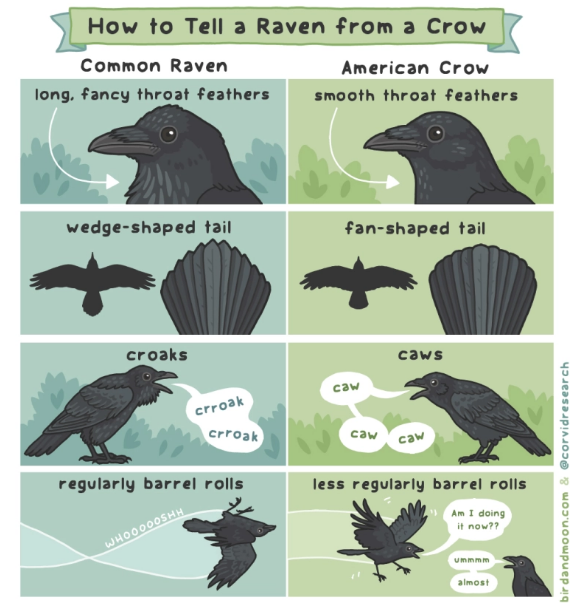Botanical Training at Nose Hill Park: Uncovering Rare Soapweed and Exploring Species Range
AJM’s vegetation team gathered at Nose Hill Park for a hands-on field training session to enhance our botanical skills. As part of the session, we focused on identifying various species, including prairie rose, Kentucky bluegrass, and prairie crocus, using transects and study plots. These methods help us assess plant community health, a key component of our ongoing vegetation monitoring projects in boreal wetlands and rangelands.
During the session, we made an intriguing discovery: soapweed (Yucca glauca), a species federally listed under the Species at Risk Act (SARA), was growing in the park. Normally found in the southern reaches of Alberta, soapweed’s presence in Nose Hill Park was a surprising find!
Valuing Alberta's Wetlands: Dry Doesn’t Mean Unimportant
For many, it can be difficult to visualize wetlands in grassland ecosystems or crop fields, especially when they appear dry for most of the year. However, wetlands play a critical role in managing floods and droughts by storing and gradually releasing water, filtering out nutrients and contaminants, and providing habitat for diverse species, including migratory birds, amphibians, and over 400 plant species in Alberta alone …
Digging into Dirt (and Data): A Regulatory Adventure
Curious about what happens when someone wants to access natural resources on their property—like digging a giant hole in the ground? That’s where we (AJM’s environmental experts) come in, armed with boots, binoculars, and laptops. In this article, we’ll walk you through a real-life project example where we conducted a Biophysical Impact Assessment for a landowner with a claypit mine on agricultural land in Alberta. Keep reading to learn how we approach these assessments and what they involve!
The Cheesy 2024 AJM Family Christmas Letter
Dear Clients, Partners, Friends, and Poor Souls Who Opened This Letter, Well, here we are—another year older, a bit wiser(?), and, in AJM tradition, full of cheese (both metaphorically and literally). Let’s rewind 2024 and relive AJM Environmental’s greatest hits—the moments where chaos knocked, and we showed up with just enough brilliance to make it look intentional. This year we tackled challenges with all the vigor of Santa’s elves trying to meet their toy quota. Here are some highlights!
Owls in the Winter - What a Hoot!
Spotting owls in Alberta during the winter is a thrilling experience, as several species, including the great horned and snowy owl, remain active in open or edge habitats despite the cold. Their presence in our snow-covered landscapes adds an enchanting and mysterious element to the province’s winter wildlife. Read on to learn more about four owl species commonly seen in Alberta throughout the winter!
Distinguishing the American Crow and Common Raven
As biologists and environmental scientists, even we sometimes mix up the American Crow and the Common Raven. They are remarkably similar, but with a bit of practice, you can tell them apart. Here’s how to differentiate these two members of the Corvid family.
Cackling Goose (Branta hutchinsii) vs. Canada Goose (Branta canadensis)
Identifying a Cackling Goose from a Canada Goose can be challenging, but with careful observation and a few key pointers, you’ll be able to distinguish between these two species with ease. These two geese may look similar at first glance, but they have distinct characteristics and behaviors that set them apart. By understanding these differences, you can enhance your bird-watching experience and appreciate the unique traits of each species.
The Art and Science of Data Visualization
People tend to be very receptive to visual information, which is why it is often said that a picture is worth a thousand words. This adage is especially true in data science, where data visualization transforms complex datasets into more readily digestible insights. What is data visualization? Very simply, data visualization is the thoughtful display of data to facilitate understanding. As scientists, we use data visualization to understand data and communicate results. The information we derive from data is used to answer questions for research or science-based advice and then carefully packaged visually to enhance understanding.
Ecosystem Insights from Space
Satellite imagery analysis has emerged as a powerful tool for understanding our natural environment. This technology enables ecosystems to be analyzed at large spatial scales at a relatively low cost, to address critical issues such as vegetation health, landcover change, and habitat connectivity. This technology is another powerful and exciting tool that AJM has available for informing responsible environmental management.
Snorkel Surveys: A Look Below the Surface
Sometimes the best way to assess a fish population is to become a fish…. or at least pretend to be one. Snorkel surveys are a sampling method sometimes utilized by fisheries biologists to enable them to peer into the underwater hidey holes which aquatic organisms call home. These surveys allow biologists to quantify the distribution, abundance, and composition of fish in an area, assess how they might be utilizing habitat, and understand more about their behavior …
Swallows of Alberta - Quick ID Guide
Although it may be easy to pick out the differences between these species when you’re comparing them on a page, it is much more difficult to accurately identify these birds in the field. The birds above are all swallows. From the family Hirundinidae, swallows are typically insectivorous and agile flyers (Sibley 2016, 305). There are six swallow species you can find throughout Alberta: Bank Swallows, Tree Swallows, Cliff Swallows, Barn Swallows, Northern Rough-Winged Swallows, and Violet-green Swallows (Sibley 2016, 306-309). The most common swallows, Bank, Tree, Cliff, and Barn Swallows, typically breed in North America and winter as far south as Argentina in the Cliff Swallow’s case (Sibley 2016, 306-309: Cornell University, 2024a). Here are some common ID tips you can use in the springtime, when these frequent flyers come around!
The Cheesy 2023 AJM Family Christmas Letter
We’re back with yet another cheesy Christmas letter from the AJM family! Against popular demand, we’ve unleashed another installment of our annual letter because apparently, we just can’t stop ourselves from talking about, well, ourselves. We promise that Chat GPT only wrote a small portion and it’s quite easy to tell which parts (hint: the jokes that aren't funny).
A friendly reminder to get lost in nature!
‘There just isn’t enough time in the day.” This is an oft heard justification why many people today can’t seem to find the time to get out and enjoy nature. Whether it’s rushing the kids to school or taking them to their extracurricular activities …
Here Be Dragons
Most AJMers would agree that one of the best parts of our jobs is spending time out in nature, getting the chance to see wildlife up close. We often focus on vertebrates, but it's hard to forget that the animal world is mostly insects when we visit a site as diverse and full of bugs as a wetland.
Welcome to AJM's New Headquarters!
In December 2022, AJM moved into its new headquarters in the Beltline of Calgary, AB. We are super excited to share a tour of our new digs. Check out the video below to see all the amazing features of our new home.















